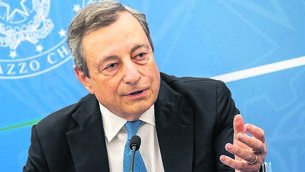Don’t quote me on that...
ANYONE who observed Seán Gallagher crash and burn in the presidential election might be forgiven for remarking that “a week is a long time in politics”.
They might even attribute the saying to the former British Prime Minister Harold Wilson. But they might well be wrong.
Despite the fact that he is believed to have made the remark in response to a journalist’s question at a press conference during the sterling crisis of 1964, he never actually remembered ever saying it and there is no record to prove he did.
The nearest verified equivalent quotation belongs to the British Liberal politician Joseph Chamberlain who is recorded in 1886 as saying: “In politics, there is no use in looking beyond the next fortnight.”
Politicians often complain that they are misquoted — and they are often right. During his lifetime Jack Lynch was often quoted as having said “we will not stand idly by” with regard to the plight of nationalists in the North in the mid 1960s.
In fact, what he said was: “The Irish Government can no longer stand by and see innocent people injured and perhaps worse.”
It is a pity that this isn’t included in Who Really Said What: 70 Misquotations We Use By Mistake which has just been published by Oxford University Press to celebrate the 70th anniversary of the Oxford Dictionary of Quotations.
There are still plenty, though, to keep the pub quizzers guessing. Among the most famous misquoted quotes are:
Supposedly, one of Mae West’s most famous lines from the film She Done Him Wrong, the actress never said the words until her final film Sextette, in 1978 — when she referred to a gun rather than a pistol.
The famous first words of astronaut Neil Armstrong on landing on the moon in 1969 were actually “one small step for a man; one giant leap for mankind”. ‘a’ was garbled during the live TV transmission of the famous event.
Supposedly said by Ingrid Bergman in Casablanca, her actual line was “Play it, Sam. Play As Time Goes By”.
Twain’s death was misreported in several newspaper accounts in 1897, so Twain responded in the New York Journal with the less exciting statement, “The report of my death was an exaggeration”.
This is a misquote from a saying of St Ambrose in the 15th century, who said: “When I go to Rome, I fast on a Saturday, but here (in Milan), I do not.”
Despite countless impressions, Count Dracula (Bela Lugosi) never uttered this now iconic line in the 1931 film Dracula.
Supposedly said by a tired Napoleon to his wife, Empress Josephine, in response to her amorous advances, the phrase does not appear in any historical accounts and is most likely the invention of a fevered imagination.
A quote attributed to Queen Marie Antoinette of France, on being told her people had no bread — but there is no record of her ever saying these words.
This is a misquote from Macbeth an d is known as the title character’s final words in the play. It is used to encourage someone to take the lead in the knowledge that you will follow. The character actually says: “Lay on, Macduff / And damned be him that first cries, ‘Hold, enough!’”
Napoleon is often credited with calling England a “nation of shopkeepers“, but Scottish economist Adam Smith actually got there first, in 1776’s The Wealth of Nations.
Despite what dozens of TV series and films would have us believe, Sherlock Holmes never uttered these words to Watson in any of Sir Arthur Conan Doyle’s books.
Beloved of trekkies everywhere, Captain Kirk never actually said this famous line in the TV series Star Trek. The nearest equivalent is “Beam us up, Mr Scott”. However, the quote was uttered in Star Trek: The Animated Series.
Supposedly said by Admiral Isoruko Yamamoto, the man behind the Japanese attack on Pearl Harbour, there is no evidence Yamamoto ever used these words. His character did say a similar line in the 1970 film Tora! Tora! Tora!
It’s one of the most famous lines in theatre, but Hamlet never actually said “Alas poor Yorick, I knew him well” in Shakespeare’s play. The correct reading is “Alas, poor Yorick. I knew him, Horatio.”
Widely attributed to the British actor Michael Caine, it was, in fact, said by the comedian Peter Sellers in an impression of the actor.
Winston Churchill’s personal secretary, Anthony Montague Browne, said that although Churchill did not say this, he wished he had.
- Oxford Dictionary of Quotations seventh edtion, £30.















